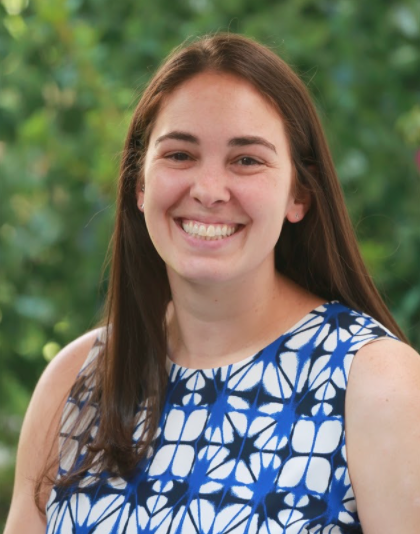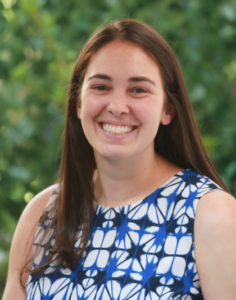What makes you wake up every morning and want to work on emerging technologies for teaching and learning?
My educational philosophy is centered around the belief that children are the future of this world and we need to cultivate each of their unique talents. Every child has their own preference for learning. Being able to design a curriculum for variability is a skill that benefits all students in the classroom. Giving them multiple ways of learning including visuals, group, and individual work, projects, and hands-on experiences, along with choices on how to be assessed and present their knowledge back to the teacher are key to a successful learning environment. I try to instill excitement and a passion for learning in my students. Integrating innovation, engineering, and technology throughout the curriculum can help students see how the world is connected. Some examples that showcase connections across the curriculum include, designing and building utensils for an upcoming outdoor education trip, creating animations of fitness moves from PE class, or coding a scene that shows an understanding of how native tribes used the land. Classroom activities and projects need to engage students in their own learning and deepen understanding. Technology devices and software are tools that support the great learning and teaching already happening throughout the day. Educational Technology programs need to continue to evolve to respond to the needs of the students. When I look at new technologies or practices I am always curious about the research behind them. I strive to understand how learning is supported, or what is supposed to happen before introducing any new tools. I am inspired by the work of researchers studying the learning sciences and focusing on supplying our young innovators with tools to succeed. I want there to be opportunities for creative play at recess times. I want lessons to be student-driven with their own ideas becoming possibilities and then realities. I want my students to live between the digital and tangible worlds. I want them to work with their peers, make mistakes, reflect, make it better the next time, and have fun while doing it.
Do you think more about technology innovation or improving understanding of learning? How do you balance the thinking?
I have always been fascinated by how students learn and have spent significant time thinking, discussing, reading, and learning about this. Students benefit from strong educators who know them as learners. Having intentional time spent on social-emotional learning helps all students to be truly engaged in their own understandings of themselves and their peers. I use the educational framework of Universal Design for Learning (UDL), which is based on research in the learning sciences to guide the development of flexible learning environments. I find value in designing lessons to support all learning preferences. By allowing students to understand themselves as learners, they learn how to advocate for themselves and create their own unique educational narrative. Technology can play an important role in a child’s educational experience. Using technology can develop essential skills for the future: critical thinking, problem-solving, etc. I believe technology can make learning more personal, more collaborative, and more creative. As an educator, I work to help children discover who they are in this world and to feel valued and loved. I encourage children to own their education and become active learners. I see my students gain confidence throughout the year by asking questions and trying to answer them independently through carefully scaffolded projects. By being aware of who they are as individuals and how they are most successful, I am able to give them the tools needed to guide them to their goals.
What do you gain when you work with others in the CIRCLS community and what are some key lessons you have learned from that collaboration?
I am passionate about finding the right tools for student learning. The collaboration between researchers and educators in the CIRCLS community is unique and has been one of the best professional development communities I’ve been a part of. Through meetings, webinars, and conversations I’ve continued to grow and learn as an educator. CIRCLS is thinking about my classroom years from now and I love how I can be a part of the conversations that help us all better those classroom experiences. Through these connections, a few years ago I was able to be part of a study with TERC. They were re-imagining their Zoombinis game to teach computational thinking skills. For an entire school year I had my 4th graders play the game and assess their skills. Another collaboration was testing out Google Expeditions. I had researchers in my classroom observe a lesson. I saw both of these as incredible opportunities for my students, the researchers, and myself!


